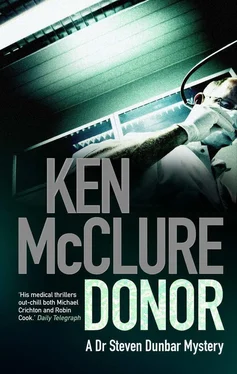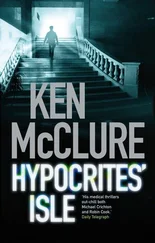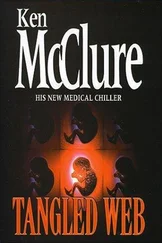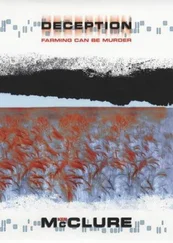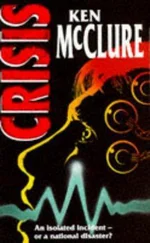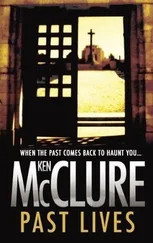Ken McClure - Donor
Здесь есть возможность читать онлайн «Ken McClure - Donor» весь текст электронной книги совершенно бесплатно (целиком полную версию без сокращений). В некоторых случаях можно слушать аудио, скачать через торрент в формате fb2 и присутствует краткое содержание. Жанр: Триллер, на английском языке. Описание произведения, (предисловие) а так же отзывы посетителей доступны на портале библиотеки ЛибКат.
- Название:Donor
- Автор:
- Жанр:
- Год:неизвестен
- ISBN:нет данных
- Рейтинг книги:4.5 / 5. Голосов: 2
-
Избранное:Добавить в избранное
- Отзывы:
-
Ваша оценка:
- 100
- 1
- 2
- 3
- 4
- 5
Donor: краткое содержание, описание и аннотация
Предлагаем к чтению аннотацию, описание, краткое содержание или предисловие (зависит от того, что написал сам автор книги «Donor»). Если вы не нашли необходимую информацию о книге — напишите в комментариях, мы постараемся отыскать её.
Donor — читать онлайн бесплатно полную книгу (весь текст) целиком
Ниже представлен текст книги, разбитый по страницам. Система сохранения места последней прочитанной страницы, позволяет с удобством читать онлайн бесплатно книгу «Donor», без необходимости каждый раз заново искать на чём Вы остановились. Поставьте закладку, и сможете в любой момент перейти на страницу, на которой закончили чтение.
Интервал:
Закладка:
It was clear that the Scottish Office people had pulled off a major triumph in the re-negotiation of terms of their involvement at Medic Ecosse. The look of surprise and relief on Bannon’s face when Ross had swallowed his pride and acceded to what he must have thought were impossible demands was only fleeting but Dunbar had seen it. Now it wouldn’t be known if he had ever intended to back off at the last moment. The injection of more public funds into the hospital would now be offset by the much more favourable terms of the agreement and by greater public access to the Medic Ecosse facilities. Even the Labour opposition at the meeting had been forced to concede that it was a good deal.
As part of the agreement there was, of course, his own secondment to Medic Ecosse as the government’s man on the ground, the overseer of public funds. His masters’ subterfuge had worked well. He was now in place to begin his investigation.
Sci-Med’s involvement had been precipitated by a complaint from a staff nurse who no longer worked at the hospital. She had maintained that there had been something improper about the treatment a transplant patient had received at Medic Ecosse some five months before. The young patient, Amy Teasdale, had died after rejecting the kidney she had been given during what was thought to be, at the time, a routine transplant operation. The staff nurse, one Lisa Fairfax, maintained that there had been a serious mix-up resulting in her patient being given the wrong organ. She was unable to be more specific, stating only that the sub sequent rejection had been so severe that no other explanation would suffice. In other circumstances her claims would almost certainly have been dealt with at local level but what had caught Sci-Med’s attention was the fact that a similar complaint had been lodged only months after the hospital opened, almost three years before and again by one of their nursing staff.
That time Sister Sheila Barnes had said much the same thing after a young boy in the transplant unit rejected the kidney he had been given. She had subsequently resigned in protest at what she saw as being ignored by the authorities, who had interviewed her but refused to take her claims seriously or to mount an internal investigation. She had maintained at the time that the authorities were keen to dismiss her complaint because they feared the bad publicity would damage the new hospital. Sister Barnes had never retracted her claim. She had intended to press for further investigation, but shortly afterwards had contracted cancer and had had to abandon her campaign. She was now in the terminal stages of her disease, a resident at The Beeches, a hospice for the terminally ill down at Helensburgh on the Clyde coast. She and her allegations had been largely forgotten until Staff Nurse Fairfax made her own complaint and Sci-Med’s computer had drawn attention to the similarity as part of its collating programme.
All reports of allegations of wrongdoing in British hospitals were recorded, filed and collated on the Sci-Med computer, however trivial they might seem. Most of them were indeed trivial, usually disgruntled patients making unfounded accusations, or staff with grudges against their employers making equally spurious allegations. But occasionally the computer picked up something that might otherwise have been overlooked. This time it had noted the remarkable similarity between the two nurses’ allegations. Both women maintained that their patients had rejected their transplant because they had been given the wrong organ. Now one of these women was currently dying of cancer and the other, Staff Nurse Fairfax, had been dismissed from her post.
Dunbar checked into his hotel near the city centre and found it pleasantly anonymous. It was also warm, which was a bonus because he was feeling chilled. Scotland always seemed to be three or four degrees colder than the south of England, where he lived. He had noticed this again as soon as he had stepped off the plane. The raw dampness of early March made things worse. He threw his briefcase on to the bed and walked over to the window to look down at the traffic moving slowly below in the wet city streets, their lights reflecting in the puddles that were proliferating as the storm drains struggled to cope.
After a few minutes he closed the blind and turned away. He picked up the phone, called room service and asked for a large gin and tonic, some chicken sandwiches and a pot of strong black coffee. After that he would have a warm bath before getting down to reading through his notes and deciding on a plan of action.
As he lay in the bath with the water lapping just below his chin, Dunbar closed his eyes and wondered about James Ross’s decision to stay on at Medic Ecosse. Ross was by all accounts a popular man, a brilliant surgeon and a highly regarded researcher in his field. But, although clearly dedicated to his patients and well liked by his colleagues, he was still a human being and therefore subject to the laws of human nature. Dunbar set great store by these laws and recognized them as the driving force behind almost everything that happened in society. Very often he had to pick away at various levels of veneer applied by clever, self-seeking people in positions of power but always, underneath, the same rules applied, whether it was on the factory floor or in the boardroom, the operating theatre or the accounts department.
Ross was a proud man — he had every reason to be. He was also a surgeon with the typical extrovert tendencies of the profession. Timidity and surgery did not go hand in hand. Self-doubt had no place in the operating theatre. According to Dunbar’s rules, it didn’t befit such a character to lose face in public as Ross had done. The humiliation of having such savage cuts applied to his research funding with not the slightest suggestion of compromise should have pushed him into a dignified resignation, but it hadn’t.
Of course, it might have been the thought of his colleagues losing their jobs if the hospital closed that had weighed so heavily on him. Being single-handedly responsible for the closure of a hospital would be a heavy burden for anyone to bear. The man, of course, might also be a saint and therefore outside Dunbar’s rules.
He supposed it would be easy enough for him to check on alternative sources of research funding once he had access to the accounts at Medic Ecosse, and he would like to know if a deal had been struck behind the scenes with Medic International; but that still wouldn’t answer his question about why Ross had acted out of character. That was the more important thing.
Having been thinking about Ross, Dunbar decided to go through his notes on the surgeon as soon as he was out of the bath. He didn’t intend going out again or even downstairs in the hotel, so he just pulled on a sweater and jeans and didn’t bother with socks or shoes. He sat cross-legged on the bed with his papers spread out in front of him, the bedside lamp angled to provide light.
James Ross’s career to date had been nothing short of outstanding, with prizes and awards punctuating his progress from medical school in London through appointments at a succession of top hospitals both in the UK and the United States. Early on in his studies Ross had been transferred to a leading medical school in New York, where he had been admitted to a programme that had enabled him to do a PhD at the same time as his medical degree. His research for his doctorate had been in immunology. This explained his intense interest in transplant research, thought Dunbar, and his high standing in the scientific community as well as the medical world.
Many doctors played at being researchers, but the days of significant discoveries being made by candlelight in the ward side room had long since gone. Those times had largely disappeared with frock coats and brass, monocular microscopes. To succeed in the extremely demanding and competitive world of medical research in the late twentieth century, you had to be a trained researcher to start with, with all the background knowledge that that entailed. Ross was just such a person. The fact that he had obtained both a PhD and a medical degree concurrently suggested that he was exceptionally gifted intellectually.
Читать дальшеИнтервал:
Закладка:
Похожие книги на «Donor»
Представляем Вашему вниманию похожие книги на «Donor» списком для выбора. Мы отобрали схожую по названию и смыслу литературу в надежде предоставить читателям больше вариантов отыскать новые, интересные, ещё непрочитанные произведения.
Обсуждение, отзывы о книге «Donor» и просто собственные мнения читателей. Оставьте ваши комментарии, напишите, что Вы думаете о произведении, его смысле или главных героях. Укажите что конкретно понравилось, а что нет, и почему Вы так считаете.
